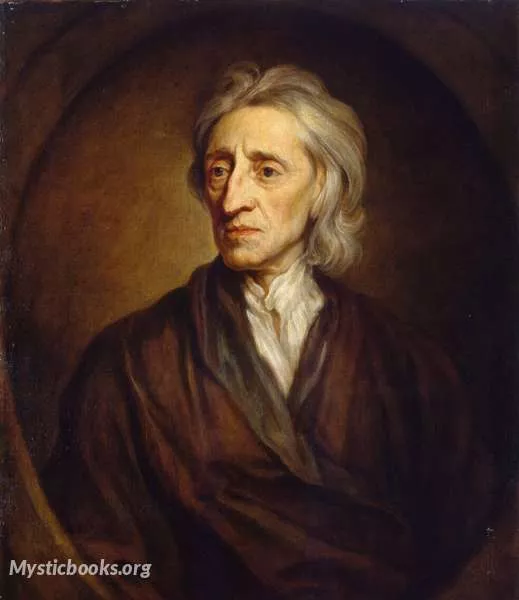
Timeline
Title
Country/Nationality
John Locke
John Locke was an English philosopher and physician, widely regarded as one of the most influential of Enlightenment thinkers and commonly known as the "Father of Liberalism". Considered one of the first of the British empiricists, following the tradition of Sir Francis Bacon, Locke is equally important to social contract theory. His work greatly affected the development of epistemology and political philosophy. His writings influenced Voltaire and Jean-Jacques Rousseau, and many Scottish Enlightenment thinkers, as well as the American Revolutionaries. His contributions to classical republicanism and liberal theory are reflected in the United States Declaration of Independence. Internationally, Locke’s political-legal principles continue to have a profound influence on the theory and practice of limited representative government and the protection of basic rights and freedoms under the rule of law.
Locke's theory of mind is often cited as the origin of modern conceptions of identity and the self, figuring prominently in the work of later philosophers such as Jean-Jacques Rousseau, David Hume, and Immanuel Kant. Locke was the first to define the self through a continuity of consciousness. He postulated that, at birth, the mind was a blank slate, or tabula rasa. Contrary to Cartesian philosophy based on pre-existing concepts, he maintained that we are born without innate ideas, and that knowledge is instead determined only by experience derived from sense perception, a concept now known as empiricism. Demonstrating the ideology of science in his observations, whereby something must be capable of being tested repeatedly and that nothing is exempt from being disproved, Locke stated that "whatever I write, as soon as I discover it not to be true, my hand shall be the forwardest to throw it into the fire". Such is one example of Locke's belief in empiricism.
Locke was born on 29 August 1632, in a small thatched cottage by the church in Wrington, Somerset, about 12 miles from Bristol. He was baptised the same day, as both of his parents were Puritans. Locke's father, also called John, was an attorney who served as clerk to the Justices of the Peace in Chew Magna and as a captain of cavalry for the Parliamentarian forces during the early part of the English Civil War. His mother was Agnes Keene. Soon after Locke's birth, the family moved to the market town of Pensford, about seven miles south of Bristol, where Locke grew up in a rural Tudor house in Belluton.
In 1647, Locke was sent to the prestigious Westminster School in London under the sponsorship of Alexander Popham, a member of Parliament and John Sr.'s former commander. After completing studies there, he was admitted to Christ Church, Oxford, in the autumn of 1652 at the age of 20.
Locke was awarded a bachelor's degree in February 1656 and a master's degree in June 1658. He obtained a bachelor of medicine in February 1675, having studied the subject extensively during his time at Oxford and, in addition to Lower, worked with such noted scientists and thinkers as Robert Boyle, Thomas Willis and Robert Hooke. In 1666, he met Anthony Ashley Cooper, Lord Ashley, who had come to Oxford seeking treatment for a liver infection. Ashley was impressed with Locke and persuaded him to become part of his retinue.
Locke's medical knowledge was put to the test when Ashley's liver infection became life-threatening. Locke coordinated the advice of several physicians and was probably instrumental in persuading Ashley to undergo surgery (then life-threatening itself) to remove the cyst. Ashley survived and prospered, crediting Locke with saving his life.
During this time, Locke served as Secretary of the Board of Trade and Plantations and Secretary to the Lords Proprietors of Carolina, which helped to shape his ideas on international trade and economics.
Locke fled to the Netherlands in 1683, under strong suspicion of involvement in the Rye House Plot, although there is little evidence to suggest that he was directly involved in the scheme. The philosopher and novelist Rebecca Newberger Goldstein argues that during his five years in Holland, Locke chose his friends "from among the same freethinking members of dissenting Protestant groups as Spinoza's small group of loyal confidants.
In the Netherlands, Locke had time to return to his writing, spending a great deal of time working on the Essay Concerning Human Understanding and composing the Letter on Toleration. Locke did not return home until after the Glorious Revolution. Locke accompanied Mary II back to England in 1688.
Locke's close friend Lady Masham invited him to join her at Otes, the Mashams' country house in Essex. Although his time there was marked by variable health from asthma attacks, he nevertheless became an intellectual hero of the Whigs. During this period he discussed matters with such figures as John Dryden and Isaac Newton.
He died on 28 October 1704, and is buried in the churchyard of the village of High Laver, east of Harlow in Essex, where he had lived in the household of Sir Francis Masham since 1691. Locke never married nor had children.
Books by John Locke
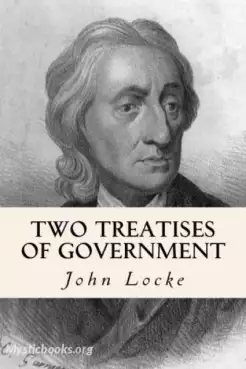
Two Treatises of Civil Government
Two Treatises of Government is a work of political philosophy published anonymously in 1689 by John Locke. The First Treatise attacks patriarchalism in the form of sentence-by-sentence refutation of Robert Filmer's Patriarcha, while the Second Treati...
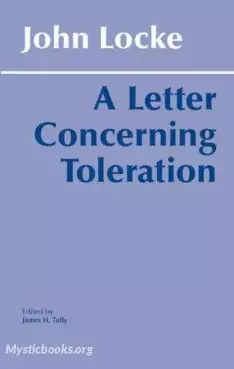
A Letter Concerning Toleration
Letter Concerning Toleration by John Locke was originally published in 1689. Its initial publication was in Latin, though it was immediately translated into other languages. In this "letter" addressed to an anonymous "Honored Sir" (actually Locke's c...
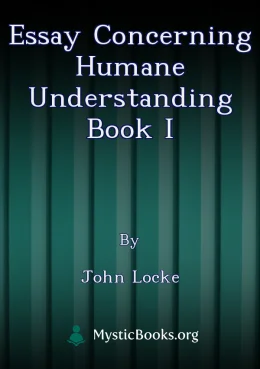
Essay Concerning Humane Understanding Book I
John Locke's philosophical text posits an empiricist theory of knowledge which argues that one's ideas originate from experience, not from innate principles. The work was a pioneering effort in the development of modern philosophical empiricism which...
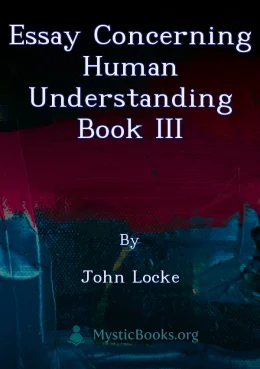
Essay Concerning Human Understanding Book III
John Locke's 'Essay Concerning Human Understanding, Book III' delves into the nature of words and their role in representing ideas. Locke explores the relationship between language and thought, examining how we use words to convey our ideas and the c...
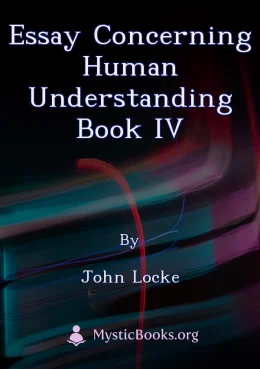
Essay Concerning Human Understanding Book IV
John Locke's *Essay Concerning Human Understanding, Book IV* delves into the nature of knowledge and the limits of human understanding. Locke examines the sources of knowledge, exploring the role of reason, experience, and perception in shaping our b...